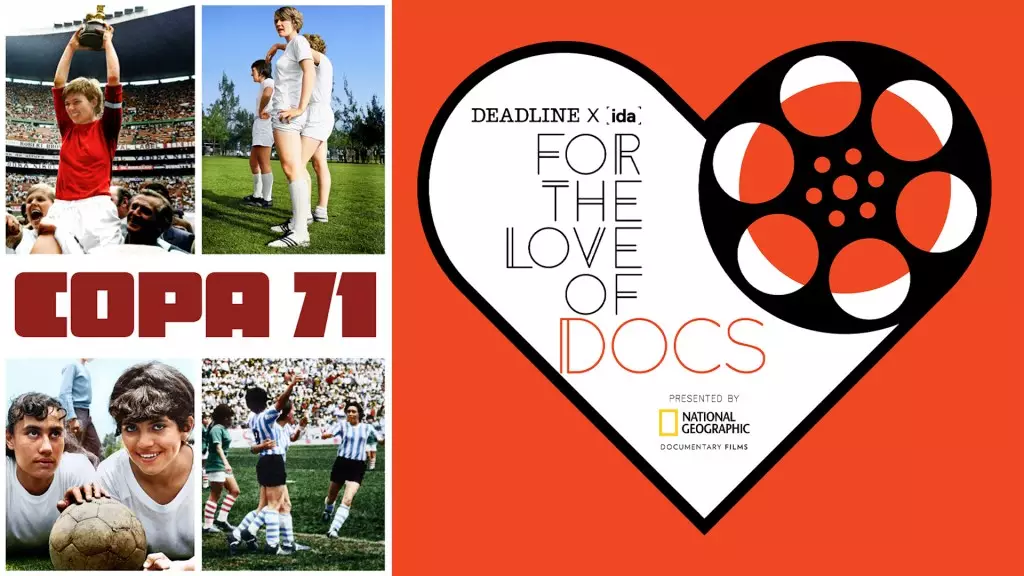In 1971, Azteca Stadium in Mexico City witnessed an unprecedented gathering of over 110,000 spectators during the unofficial Women’s World Cup soccer tournament. This momentous occasion marked a pivotal chapter in the annals of women’s sports but has largely faded from public memory. The documentary **Copa 71** delves into this enigmatic tournament and its historical significance, unearthing the stories of the women who participated and the societal dynamics that overshadowed their achievements.
The documentary, created by prominent filmmakers Rachel Ramsay and James Erskine along with producer Victoria Gregory, not only revisits the matches but also confronts the issues of sexism and marginalization that these female athletes faced both during and after the tournament. With screenings across major film festivals globally, **Copa 71** seeks to challenge the narrative surrounding women’s soccer and shine a spotlight on the barriers the players had to overcome.
The origins of this documentary stem from a chance discovery by Gregory’s husband, who stumbled upon a radio segment featuring a former England team player. Realizing the depth and significance of the stories tied to Copa 71, Gregory prompted the initiating of a comprehensive project aimed at uncovering the forgotten narratives of the female players. This involved extensive research for archival footage showcasing the tournament and interviewing surviving athletes from the teams of Mexico, England, Argentina, France, Italy, and Denmark.
A challenging task, the filmmakers faced initial skepticism from the former players. Many had kept their experiences under wraps, often not even revealing their participation to their families. This necessitated a slow process of building trust, enabling the filmmakers to promise a respectful and accurate portrayal of their stories, far removed from the sensationalism that often haunted accounts of women in sports.
Decoding the Media’s Role
Copa 71 represents a critical point not only in sports but also in understanding the media’s influence on women’s narratives. The documentary exposes how journalists in 1971 often sexualized these athletes while dismissing their skills, a tactic that echoes in various forms even today. This dehumanization was compounded by the lack of recognition from governing bodies like FIFA, which did not formalize an official Women’s World Cup until 1991, a move which left many women feeling unsupported and undervalued in their pursuits.
The film poignantly draws parallels to recent events in women’s soccer, such as the controversial incident involving the former president of the Royal Spanish Football Federation. The act of humiliation that transpired during what should have been a moment of celebration prompts viewers to reflect on how far society has truly come in terms of gender equity in sports, leading to deeper discussions on autonomy and respect for female athletes.
Within **Copa 71**, the exploration of themes such as power dynamics, financial independence, and the right to self-expression resonate deeply with contemporary conversations regarding gender roles in sports. Ramsay emphasizes the importance of recognizing these recurring patterns—how resistance against institutional exploitation remains relevant today. By documenting the Mexican women’s team’s strike for better compensation, the film highlights their fight against economic inequity, a struggle that persists in sports and other fields.
As Erskine aptly notes, the film ventures beyond mere financial discussions to spotlight issues of control and respect in athletic environments. The theme of self-expression and the fundamental right to assert oneself, both on and off the field, serves as a backbone for the narratives presented in the documentary. It challenges audiences to acknowledge the ongoing battle for equality in the sporting arena and beyond.
By resurrecting the narrative around Copa 71 and amplifying the voices of its female players, the documentary creates a significant dialogue about the challenges faced by women in sports. The endeavor undertaken by Ramsay, Erskine, and Gregory not only pays homage to the athletes who participated in this groundbreaking event but also serves as a critique of the systemic issues that remain in sports culture today.
As we celebrate the growth of women’s sports, it is vital to remember the past—both its triumphs and its failings. **Copa 71** is more than just a documentary; it is a call to action to recognize and value the contributions of women in sports and beyond, ensuring that their stories are not erased from history again. Through films like this, we are reminded of the resilience of female athletes and the need for societal change, as their battles for recognition and respect are far from over.

Leave a Reply